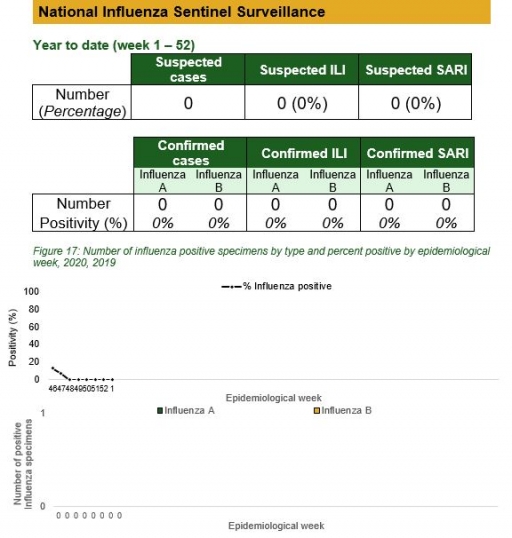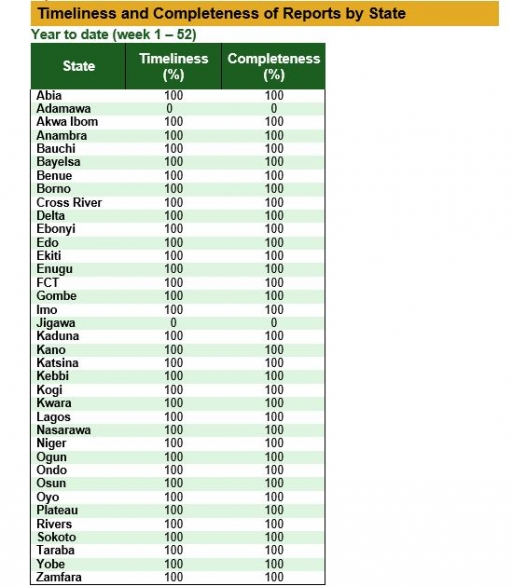Editoral
Strengthening Disease Surveillance and Early Response through Epidemic Intelligence
Posted: 21-01-2020 10:23:59 AM
Epidemic Intelligence (EI) is a framework for strengthening disease surveillance, improving preparedness and enabling early response during outbreaks or public health emergencies. With support from partners, the Nigeria Centre for Disease Control (NCDC) continues to improve its EI for early detection, verification and assessment of potential health threats.
To strengthen the country’s emergency preparedness and response, NCDC has initiated a daily Signal Management and Epidemic Intelligence review meeting. This uses both Event-Based Surveillance (EBS) and Indicator-Based Surveillance (IBS) systems, to gather science based data and information on diseases of public health relevance. These data include official reports and rumours from various credible sources such as the Integrated Disease Surveillance and Response (IDSR) strategy; media outlets; hotline calls/short message services; sentinel surveillance; laboratory networks; humanitarian data; Emergency Operations Centres (EOCs) etc.
The introduction of this review is further guided by the introduction of Epidemic Intelligence from Open Sources (EIOS) tool to NCDC, by WHO in 2019. This makes Nigeria the first country in Africa to adopt the platform.
The NCDC daily Signal Management and Epidemic Intelligence review meeting aligns with the WHO global epidemic intelligence process. The objectives of this meeting are to:
1. Conduct daily analysis of public health risks from all parts of the country and provide direction for follow-up action(s)
2. Translate data-driven evidence to inform response activities
3. Ensure standardisation of signal management processes using relevant Standard Operating Procedures (SOPs)
4. Provide guidance for evaluating and initiating public health response following identified threats
5. Provide guidance for sharing information to reduce the time necessary for mobilisation of resources in the event of a public health emergency
Signals are managed sequentially using the steps of Sniffing, Detection, Verification, Analysing, Risk Assessment, Reporting and Responding. Asides the in-depth analysis of signals by the subject matter experts, the information gathering platforms within our Incident Coordination Centre (ICC), also support signal detection and analysis functions.
One of our major priorities in 2020, is to strengthen the capacity to quickly detect and prevent the spread of disease outbreaks in Nigeria.
Summary of Incidents
Notes
1. Information for this disease was retrieved from the Technical Working Group and Situation Reports
2. Case Fatality Rate (CFR) for this disease is reported for confirmed cases only
3. Information for this disease was retrieved from IDSR 002 data
4. CFR for this disease is reported for total cases i.e. suspected + confirmed
5. Information for sentinel influenza was retrieved from the laboratory

Lassa Fever
Key points
• There were 98 suspected cases of Lassa Fever (LF) reported from 16 LGAs in nine states and FCT (Edo – 49, Ondo – 19, Ebonyi – 9, Bauchi – 5, Taraba – 8, Benue – 1, Kogi - 1, Enugu – 3 & Abia – 3). There were 18 confirmed cases and one death was recorded from Abia state.
Actions
To date:
• National Lassa Fever multi-sectoral Technical Working Group (TWG) continues to coordinate response activities and support states
• Emergency Operations Centres have been activated in Ondo and Ebonyi states
• NCDC Rapid Response Team (RRTs) deployed to Ondo and Ebonyi states
Planned:
• Conduct a review of mortality rates of Lassa fever deaths

Cerebrospinal Meningitis (CSM)
Key points
There were ten suspected cases of Cerebrospinal Meningitis (CSM) reported from five LGAs in three states (Cross River – 4, Ebonyi – 2 & Katsina – 4). None was laboratory confirmed and one death was recorded
Actions
To date:
• National CSM Technical Working Group (TWG) meets weekly to review reports from states and plan appropriately
• Enhanced surveillance in all states
Planned:
• Continue harmonisation of the national line list and SORMAS data

Yellow Fever
Key points
• There were 19 suspected cases of yellow fever (YF) reported from 17 LGAs in 11 states. None was laboratory confirmed and no death was recorded
Actions
To date:
• National YF Technical Working Group (TWG) meets weekly to review reports from states and plan appropriately
Planned:
• Follow up on outcome of International Coordinating Group (ICG) request for vaccination

Cholera
Key points
• There were 33 suspected cases of cholera reported from two LGAs in two states (Bayelsa – 25 & Kebbi – 8). None was laboratory confirmed and two deaths were recorded
Actions
To date
• National cholera multi-sectoral Technical Working Group (TWG) continues to monitor all states and is supporting affected states
Planned:
• Ensure that reporting states conduct rapid diagnostic test/culture test and send line list of all reported cases to the national level

Measles
Key points
• There were 183 suspected cases of measles reported from 83 LGAs in 21 states. None was laboratory confirmed and three deaths were recorded
Actions
To date
• National measles Technical Working Group (TWG) is closely monitoring surveillance data and response activities across the country
Planned:
• Continue the review of measles surveillance data across the country
• Continue harmonisation of the national line list and SORMAS data

Monkeypox
Key points
• There were no suspected cases of Monkeypox reported this week
Actions
• National Monkeypox Technical Working Group (TWG) is monitoring activities in all states
• Off-site support to affected states
Planned:
• Enhance surveillance for Monkeypox in high burden states, working with the animal health colleagues.

Acute Flaccid Paralysis (AFP)
Key points
• There were 33 suspected cases of AFP reported from 29 LGAs in 14 states and FCT. None was laboratory confirmed and no death was recorded

National Influenza Sentinel Surveillance

Timeliness and Completeness of Reports

Timeliness and Completeness of Reports by State














 Toll Free Number: 6232
Toll Free Number: 6232 Whatsapp: +234 708 711 0839
Whatsapp: +234 708 711 0839 SMS Number: +234 809 955 5577
SMS Number: +234 809 955 5577 